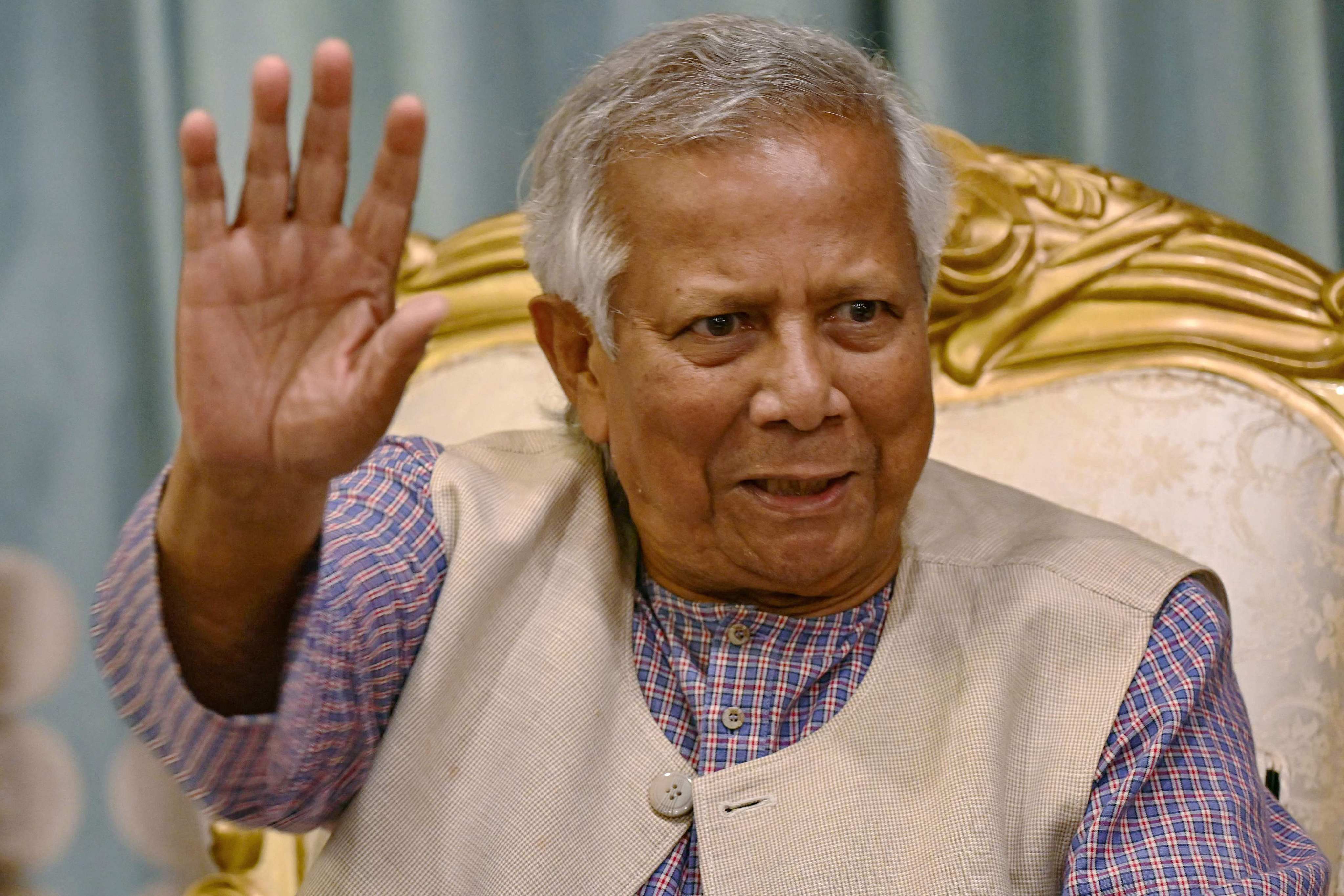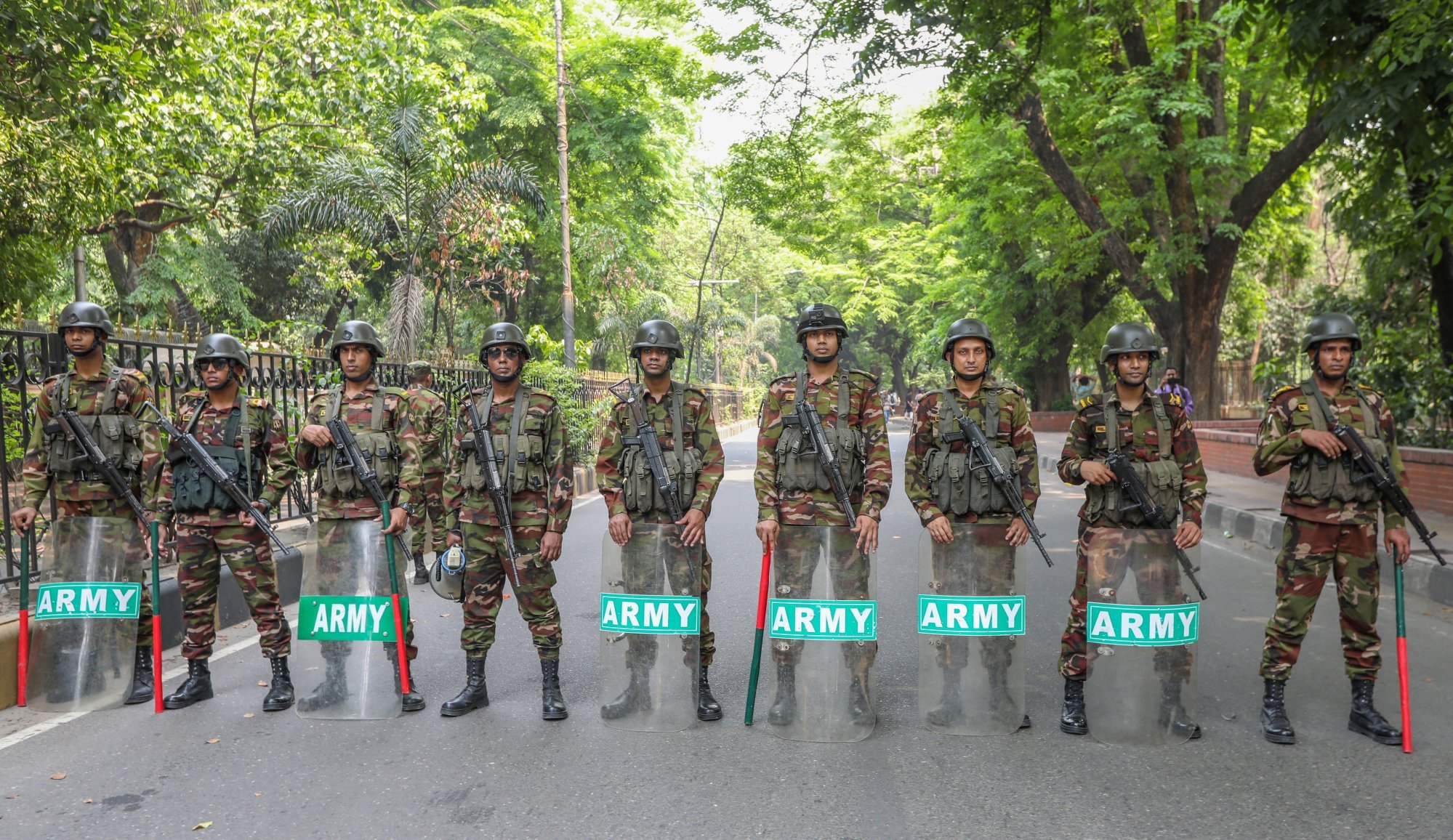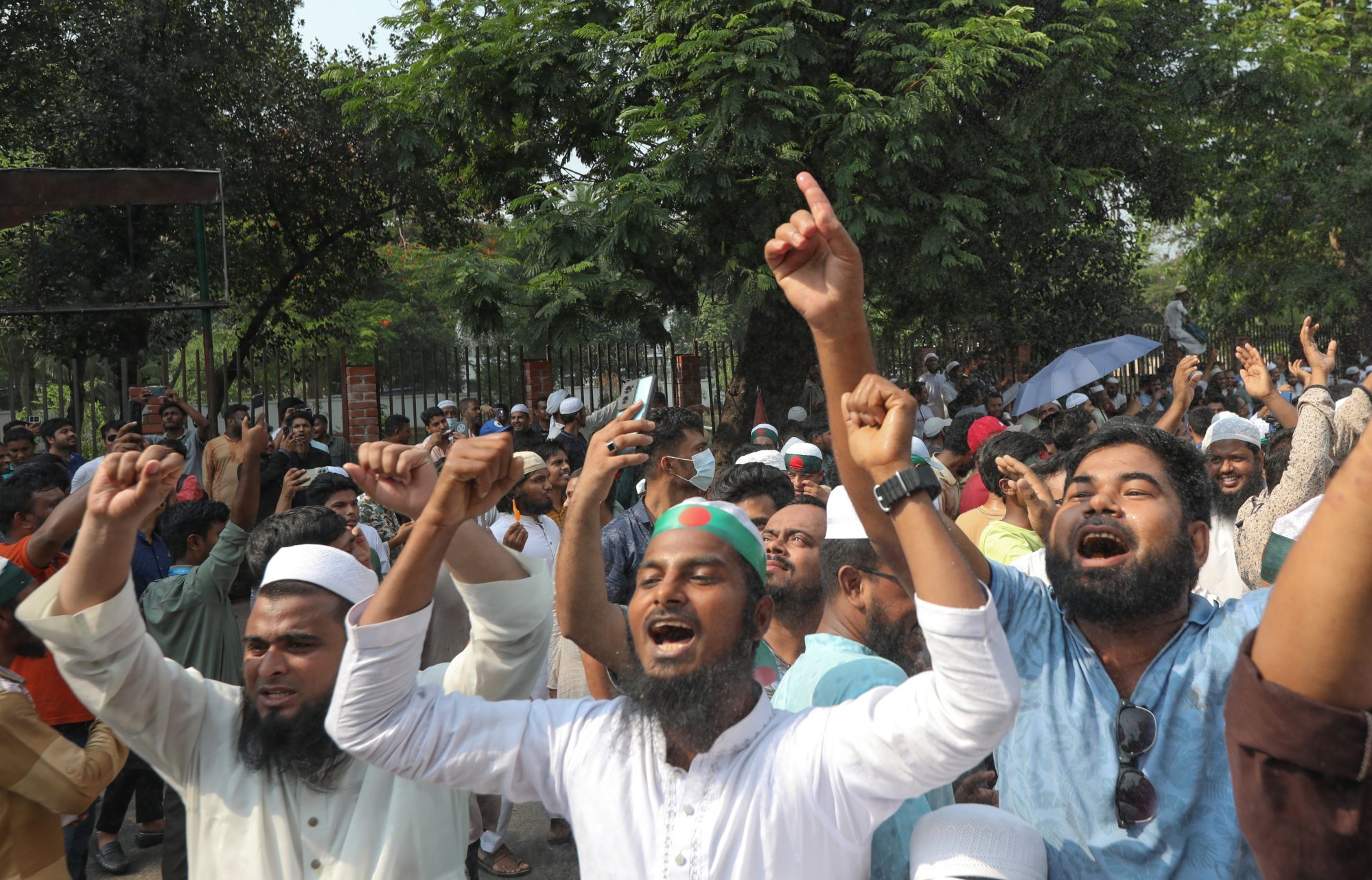Bangladesh’s interim govt warns of authoritarianism, student protesters fear reprisals
The government said it had faced unreasonable demands, provocative and overreaching statements, and continuos obstruction of their work

Bangladesh’s interim government, which took over after a mass uprising last year, warned on Saturday that unity was needed to “prevent the return of authoritarianism”.
“Broader unity is essential to maintain national stability, organise free and fair elections, justice, and reform, and permanently prevent the return of authoritarianism in the country,” it said in a statement after a week of escalation during which rival parties protested on the streets of the capital Dhaka.
The South Asian nation of around 170 million people has been in political turmoil since ex-prime minister Sheikh Hasina was ousted by student-led protests in August 2024, ending her iron-fisted 15-year rule.
The caretaker government is led by chief adviser Muhammad Yunus, the 84-year-old Nobel Peace Prize winner.
Yunus, who returned from exile at the behest of protesters, says he has a duty to implement democratic reforms before elections, which are due by June 2026 at the latest.
“If the government’s autonomy, reform efforts, justice process, fair election plan, and normal operations are obstructed to the point of making its duties unmanageable, it will, with the people, take the necessary steps,” the caretaker government said, without giving further details.
Yunus is due to hold talks on Saturday with key political parties who have protested against the government this month.

The statement said the government had faced “unreasonable demands, deliberately provocative and jurisdictionally overreaching statements”, which it said had been “continuously obstructing” its work.
Yunus’s team has confirmed he will meet leaders of the powerful Bangladesh Nationalist Party (BNP), as well as leaders of Jamaat-e-Islami, the Muslim-majority nation’s largest Islamist party.
Both parties have protested against the government.
No agenda has been released but the BNP, seen as the front-runners in elections, are pushing hard for polls to be held by December.
According to Bangladeshi media and military sources, army chief General Waker-Uz-Zaman also said this week that elections should be held by December, aligning with BNP demands.
They would be the first elections since Hasina fled to India, where she remains in self-imposed exile in defiance of an arrest warrant to face trial for crimes against humanity related to last year’s police crackdown on protesters during which at least 1,400 people were killed.
Student leader fears reprisal
Nahid Islam, leader of the National Citizen Party (NCP) made up of many students who spearheaded the uprising that ended Hasina’s 15-year iron-fisted rule last year, said he worried about an “anti-democratic” future.
Bangladesh has a long history of coups, and the army retains a powerful role.

Islam, an ally of Yunus who previously served in his cabinet, told reporters on Saturday that he foresaw a situation similar to January 11, 2007, when a state of emergency was declared resulting in a two-year-long military-backed government.
“There are indications that a 1/11-style military-backed government could re-emerge – one that is anti-democratic and anti-people,” Islam said.
But Islam said that the military’s role was “to ensure national security”, and not to get involved in politics.
“While the military is an essential institution for state security, it should not interfere in political affairs,” he said.
Islam said it was for those reforms that students launched their protests last year, but that Yunus told him during a meeting on Thursday that the pressure put on him had frustrated him.
“He assumed office to bring about fundamental change. People expect to see trials, reforms, and a peaceful transition of power. Under the current circumstances, he feels he cannot deliver to those expectations,” Islam said.
“There is a real fear that elections may not be free and fair but instead heavily restricted.”